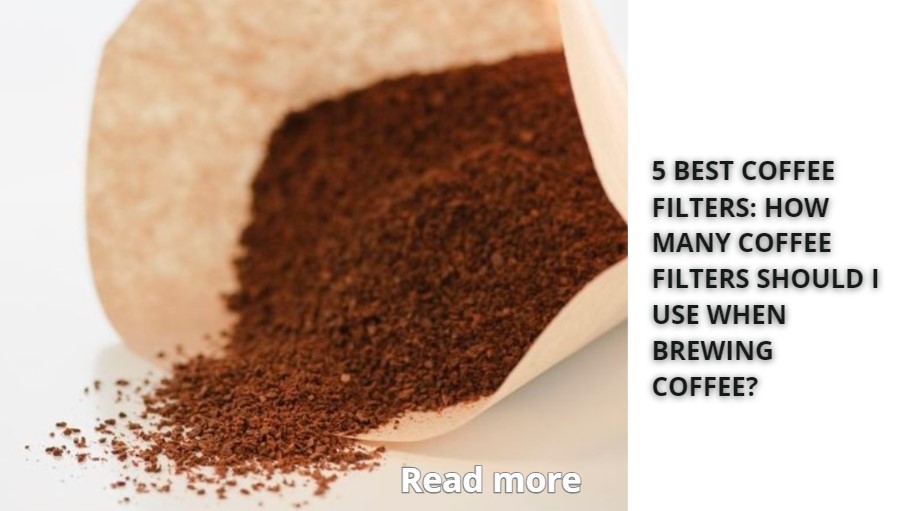
How many coffee filters should I use when brewing coffee? Knowing how many coffee filters to use at the right ratio is essential for making the ideal cup of coffee, as it affects both flavor and brewing efficiency. But that’s not all, because it is very important to choose the best coffee filters so that the taste is bright and rich.
5 Best Coffee Filters: Main Types
When choosing the best coffee filter, I considered various factors, including the brewing method, flavor preferences, and environmental impact. I researched different types of filters, such as paper, metal, and cloth, evaluating their advantages and disadvantages. This led me to understand the unique qualities of each type, including how they affect the taste of the coffee and their convenience for daily use.
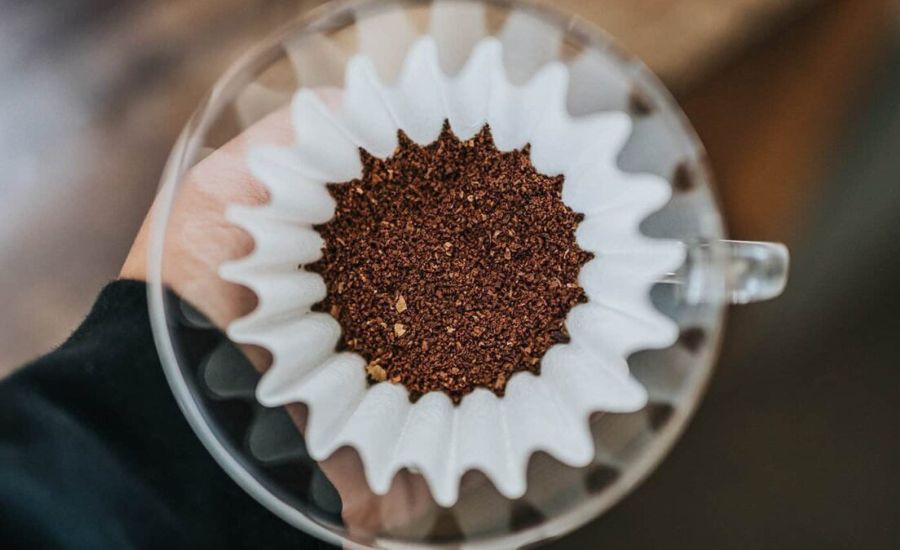
To organize my findings, I created a table that summarizes the characteristics of each filter type, highlighting specific brands for easy reference. This concise format makes it easier to compare options and find the best fit for different coffee brewing needs.
| Filter Type | Description | Advantages | Disadvantages | Best Coffee Filters: Brand |
|---|---|---|---|---|
| Paper Filters | Disposable, can be bleached or unbleached | Easy to use, good filtration | Used once, contributes to waste | Melitta coffee filters, Bunn, Chemex |
| Metal Filters | Reusable, made of stainless steel or gold-coated | Eco-friendly, retains oils, provides rich flavor | May require more cleaning | Able, Keurig |
| Cloth Filters | Reusable filters made from cotton or other fabrics | Eco-friendly, can enhance flavor | Requires regular cleaning | CoffeeSock, Koffee Kult, Brewed Awakening |
| Cone Filters | Used in pour-over brewing methods | Promotes even extraction | Can be tricky to use | Hario V60, Chemex |
| Basket Filters | Common in drip coffee makers | Easy to find, simple to use | Often disposable, may affect flavor | Mr. Coffee, Cuisinart |
Determining the number of coffee filters
There are several considerations to consider when determining how many coffee filters are needed for a single cup of coffee. Knowing the recommended dosages can be a useful place to start when brewing coffee.
Manufacturer’s guidelines
Recommended quantities for filters are frequently given by manufacturers according to the particular brewing apparatus.
The user manual or package may contain this advice.
For a standard 8-12 cup drip coffee machine, the user manual often suggests using one coffee filter for a cup of coffee.
To ensure effective filtration of coffee grounds during brewing coffee, it is occasionally advised to use two coffee filters with a big cold brew system.
General brewing ratios
The Specialty Coffee Association and other establishments provide general brewing ratios – a general guideline for the proportion of coffee to water, which in turn affects the amount of filter.
Depending on the amount of grounds used in comparison to the volume of water, these ratios may recommend using a particular number of filters.
An average 4-cup drip coffee machine uses two coffee filters for each cup of coffee, based on a brewing ratio of 1 tablespoon of grounds per 6 ounces of water, to ensure optimal extraction and flavor balance.
Using one coffee filter for every 20 grams of grinds is typically necessary when using a 1:15 coffee-to-water ratio in a normal pour-over method to achieve the best possible brewing and extraction.
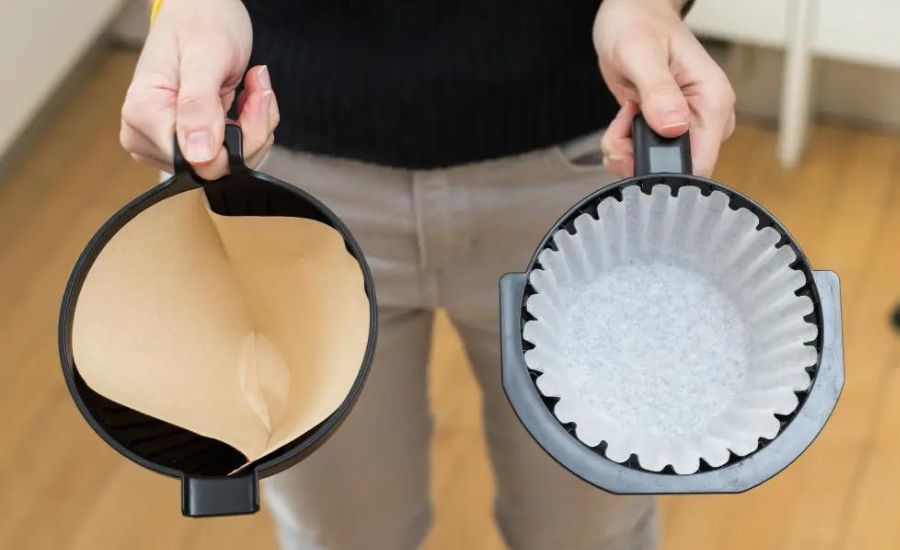
Factors influencing filter choice
Coffee strength preference:
- Individual preferences about the strength of coffee have a big impact on how many filters are needed.
- Bolder coffee typically calls for a larger coffee-to-water ratio, which may mean using additional filters to accommodate the extra grounds in a cup of coffee.
- To ensure appropriate extraction and avoid over- or under-extracted coffee, coffee enthusiasts who prefer bitter coffee may need to use 3 paper filters while making 12 cups of coffee in ordinary coffee machines.
- On the other hand, two coffee filters may be all that is needed for the same brewing volume if the goal is a milder, flavorful cup. This will result in a smoother coffee character.
Filter thickness and material:
- The ability of a coffee filter to capture coffee grounds and oils might vary depending on its thickness and composition.
- To attain the required level of filtration and prevent grounds from going through, fewer coffee filters may be needed if the coffee filter is thicker or composed of a certain substance.
- Even when using a greater coffee-to-water ratio, a thicker, more durable paper coffee filter might effectively strain grounds in pour-over procedures, using just one coffee filter.
- However, when using techniques like French press brewing, a thinner coffee filter might require the use of two or more units to keep the grounds from getting through.
Size of the drip coffee machine:
- The number of filters required for a cup of coffee is strongly influenced by the size of the drip coffee maker or brewer.
- Multiple filters may be needed for larger brewing apparatuses, like commercial machines or extra-large French presses, to handle the increased volume of water and grounds required in a single brewing session.
- On the other hand, one or two filters may be sufficient for use with smaller brewing apparatuses meant for single cups or smaller quantities.
- Six large paper filters may be needed for a large commercial coffee maker that can brew 60 cups to effectively manage the significant volume of water and coffee grounds.
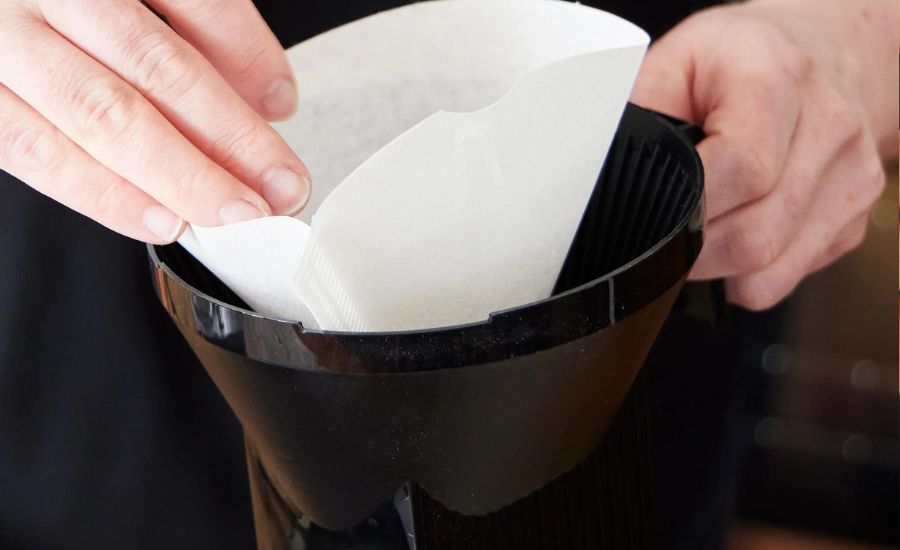
Brewing method:
- Certain filter types are required for different brewing techniques to get the best results.
- Paper filters are frequently used for pour-over brewing because they yield a clean cup, whereas metal filters are frequently used in French press methods to allow for more oils and a fuller body.
Coffee grind size:
- Which kind of filter works best depends on the size of the grounds.
- Finely ground coffee beans may require finer filters to prevent sediment, while coarser grinds may work well with broader mesh or perforated filters, like those in a French press.
Personal taste preferences:
- Taste and texture preferences vary, which affects the type of filter selected.
- Paper filters are better for those who like their coffee lighter and cleaner; on the other hand, metal or cloth filters let more oils and tiny particles through and are better for those who like a stronger, more bitter coffee.
Practical applications and guidelines
Implementing practical guidelines enhances brewing precision and efficiency across various methods and batch sizes for brewing coffee.
Single-cup brewing methods
Drip coffee makers:
- Single-serve drip coffee makers frequently just need one disposable filter.
- For maximum extraction and convenience, a conventional single-serve coffee maker uses one cone-shaped paper filter for each coffee cup.
Pour-over techniques:
- Pour-over techniques usually call for one paper or cloth filter to be used every brewing session.
- Pour-over brewing allows for regulated pouring for consistent flavor development and extraction. A cone-shaped paper filter is inserted into a dripper to hold enough grounds for one cup.
Large batch brewing
A commercial coffee machine:
- Depending on the brewing volume, many commercial coffee machines require several paper filters or large reusable filters.
- Six to eight paper filters or a set of big reusable filters may be required by a commercial coffee machine meant for making huge batches of coffee because of the substantial hot water and coffee ground amount.
Large French presses or cold brew systems:
- Many metal or mesh filters may be used in large French presses or cold brew systems.
- Using 2 or 3 metal filters can efficiently handle the volume of coarser coffee grounds for a big French press or cold brew system, facilitating extraction and producing a rich, full-bodied brew.
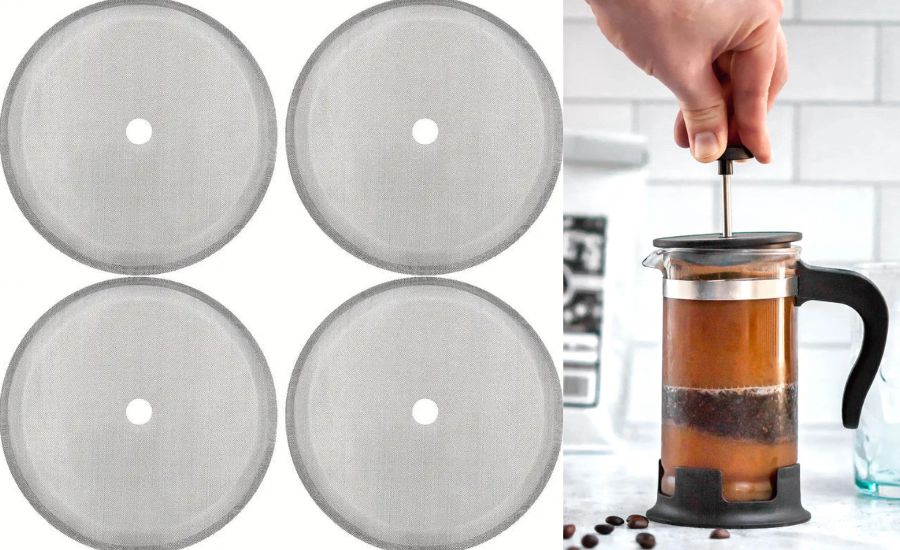
Eco-friendly considerations and reusability
Sustainable alternatives to disposable paper coffee filters:
- Metal filters: metal filters are a sustainable substitute for paper filters that are thrown away. Since they can be used repeatedly, they cut down on the waste that single-use filters produce.
- Cloth filters: cloth filters offer an additional environmentally sustainable means of cutting down on filter waste. As they are reusable and washable, this helps promote more environmentally friendly brewing methods.
Techniques for reusing filters:
- Rinsing and drying: to get rid of coffee residue, completely rinse cloths or metal filters after using. Filters that have been properly dried can be reused several times, extending their useful life.
- Regular maintenance: to keep reusable filters in good shape, inspect and clean them frequently. By extending their useful life, maintenance lessens the need for frequent replacements and lessens the impact on the environment.
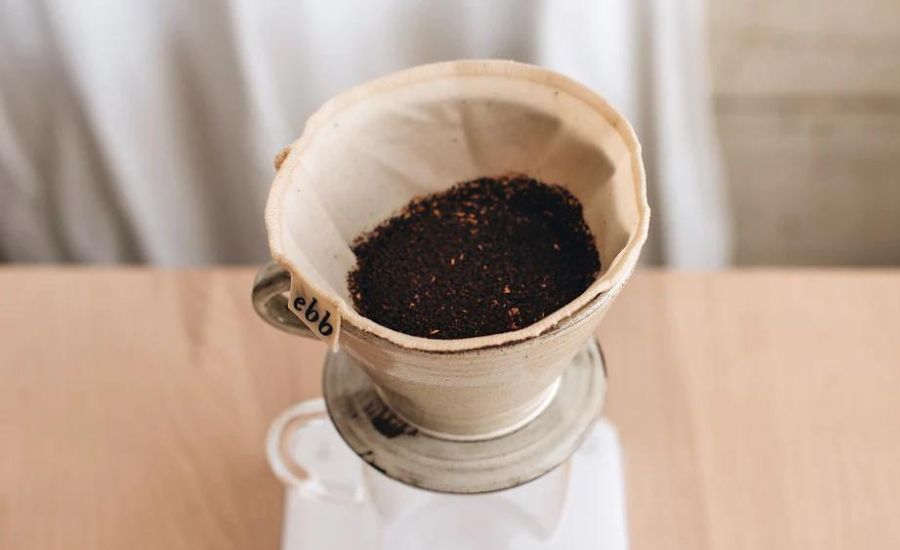
Conclusion
In determining the right coffee filter number and type, considering various factors and exploring eco-friendly options can significantly enhance brewing experiences.
FAQ
How many times coffee filters should I use?
A permanent filter or reusable coffee filter — such as those made of cloth or metal — can usually be used repeatedly when properly cared for and maintained. Nevertheless, to preserve ideal brewing conditions, disposable paper filters are made for single use only.
What is the difference between #1 and #2 coffee filters?
The numbers #1 and #2 on coffee filters refer to their sizes. In general, #2 filters have a bigger capacity than #1 filters, which allows for the automatic coffee maker to brew larger amounts of coffee grounds.
How many coffee filters should I use Reddit?
The brewing technique, the size of the automatic coffee maker, and personal preferences (such as whether you prefer a milder or bolder coffee) all affect how many coffee filters are needed.
How much filter coffee should I use?
Generally, one should use the suggested brewing ratios (commonly expressed in tablespoons of coffee per cup or volume of water) when determining how much filter coffee to use.
For every six ounces of hot water, a conventional recommendation is to add one to two tablespoons of coffee grounds.
How many coffee filters should I use for stronger coffee?
For stronger coffee, the quantity of coffee filters you should use varies mainly depending on a few things. If you want a stronger coffee, take into account these tips:
1. Use a higher ratio of coffee grounds to water. A stronger coffee often requires more grounds.
2. Stronger coffee could be produced without compromising the efficiency of the filter by using thicker filters with more grinds.

Hello, coffee enthusiasts! I’m Nancy Gregory, a seasoned coffee sommelier eager to share the exquisite world of coffee with you. I love coffee with every fiber of my soul and I know a lot of interesting information about beans and coffee brewing methods that I want to share with you.